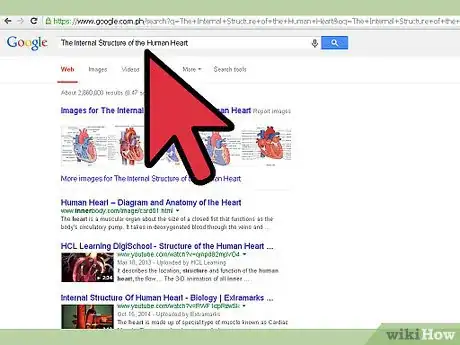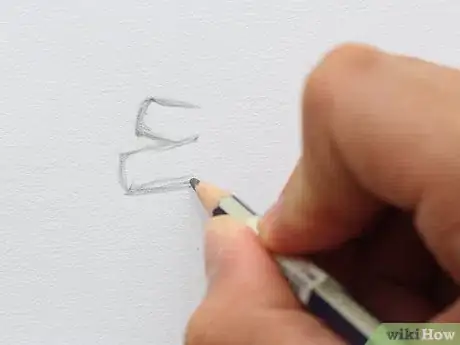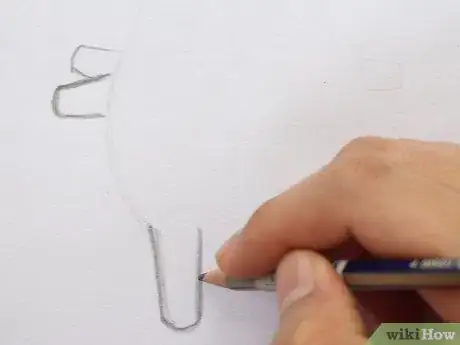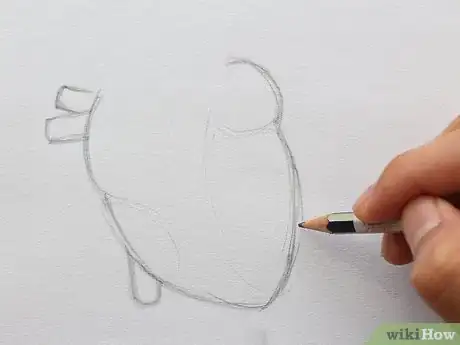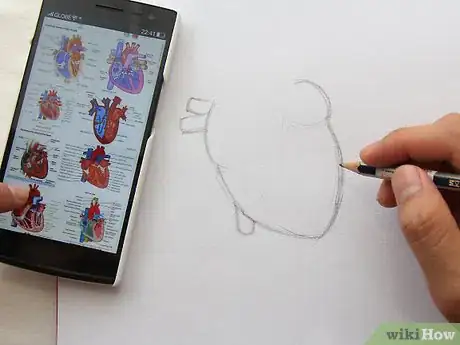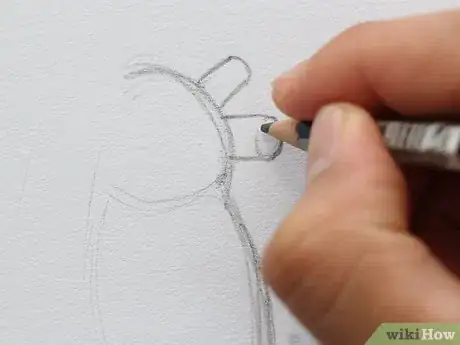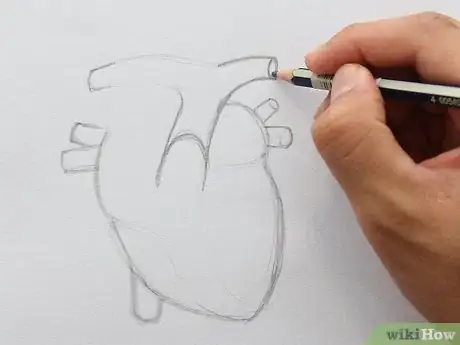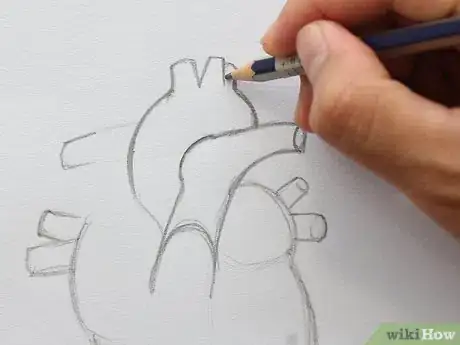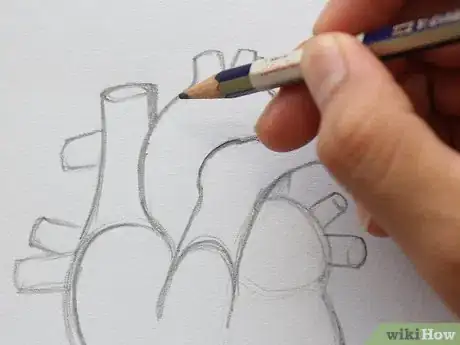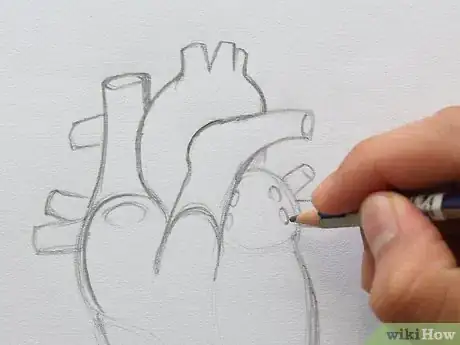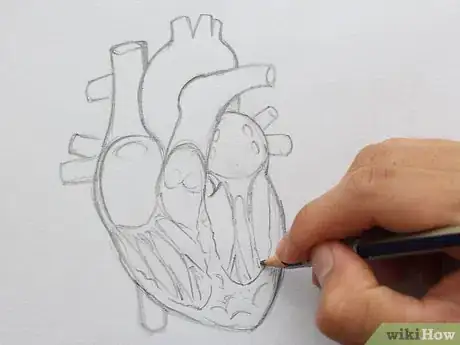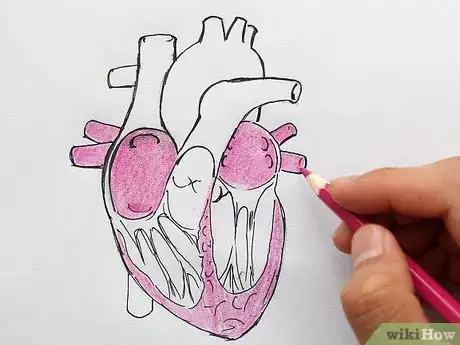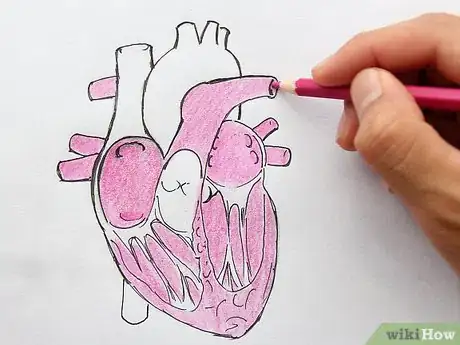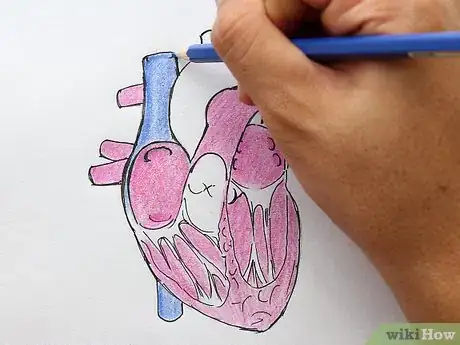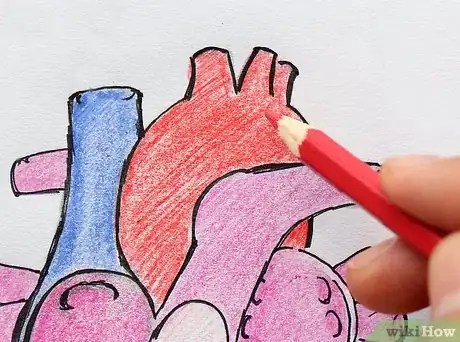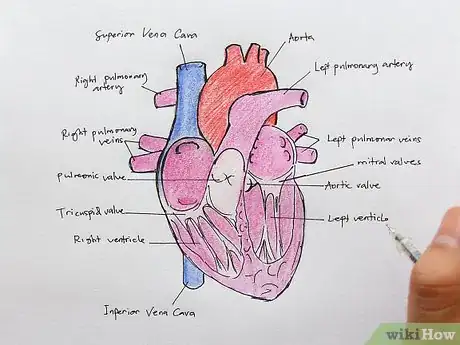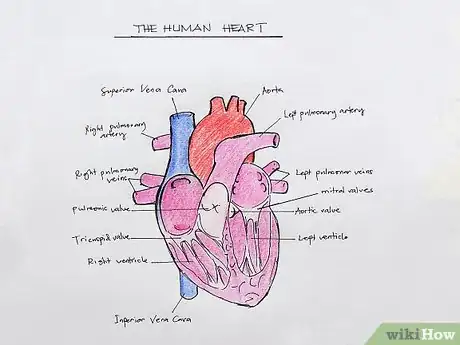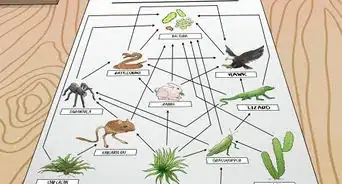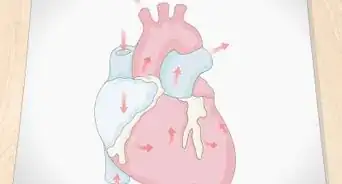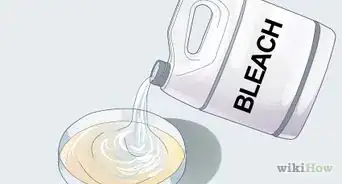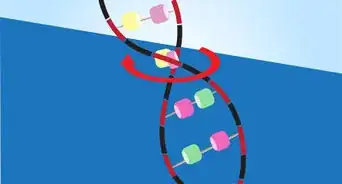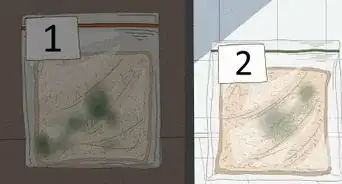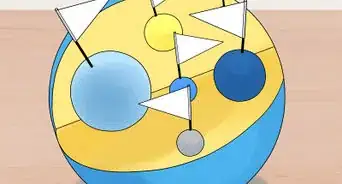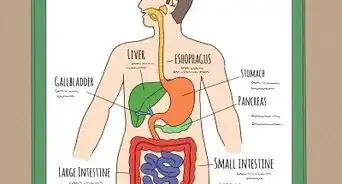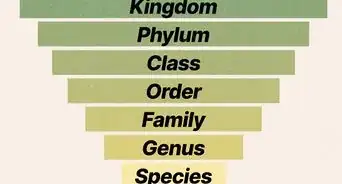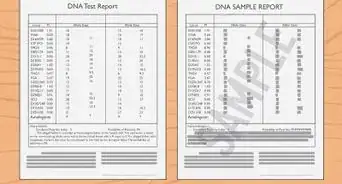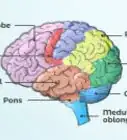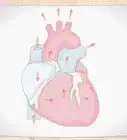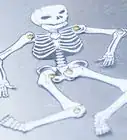This article was co-authored by wikiHow Staff. Our trained team of editors and researchers validate articles for accuracy and comprehensiveness. wikiHow's Content Management Team carefully monitors the work from our editorial staff to ensure that each article is backed by trusted research and meets our high quality standards.
wikiHow marks an article as reader-approved once it receives enough positive feedback. In this case, 81% of readers who voted found the article helpful, earning it our reader-approved status.
This article has been viewed 210,459 times.
Learn more...
Are you fascinated with anatomy, or looking to take your drawing skills to the next level? Drawing realistic anatomy can be a challenge. To draw the internal structure of a human heart, follow the steps below.
Steps
Finding a Diagram
-
1To find a good diagram, go to Google Images, and type in "The Internal Structure of the Human Heart". Find an image that displays the entire heart, and click on it to enlarge it.[1]
-
2Find a piece of paper and something to draw with. Start with the pulmonary veins. They will be to the lower left of the Aorta. There are two of them. Draw the top vein slightly smaller than the bottom vein.Advertisement
-
3Below the pulmonary veins, and slightly to the right, begin sketching the bottom of the inferior vena cava.
-
4Begin sketching the base of the heart, including the right and left ventricles, and the right and left atriums. The pulmonary veins should be adjacent to the right atrium, and the inferior vena cava should be adjacent to the right atrium and right ventricle.[2]
-
5Change diagrams if needed. If the diagram that you are using is helping you to sketch the heart, you should continue to use the same diagram. If you are confused about where parts of the heart are, find a new diagram.
Sketching the Heart
-
1Draw the other side of the pulmonary veins, and add circles at the end.
-
2Begin drawing the pulmonary artery. Bottom ends at the top of the right ventricle. The left and right sides should be slightly above the atriums and pulmonary veins. The pulmonary artery is shaped like an uppercase 't'. It extends to the top of the right ventricle. Draw a circle at the end of it at the bottom.[3]
-
3To draw the aorta, begin by drawing the loop over and around the pulmonary artery, ending at the top of the left ventricle. To draw the back of the aorta, draw a single line connecting from the right side of the pulmonary artery to the top of the left atrium. To finish drawing the aorta, draw three nubs at the top of the loop. After you draw these, erase the lines connecting from one side of the bottom of the nub to the other. Add tilted circles to the top of all of the nubs. Draw a circle at the bottom of the aorta, adjacent to the left ventricle.
-
4To draw the superior vena cava, draw a nub extending from the top of the right atrium, overlapping the left side of the pulmonary artery, to slightly above the left side of the pulmonary artery. At the bottom of the superior vena cava, adjacent to the right atrium, draw a circle.
-
5Draw four circles in the left atrium, and one circle in the right atrium, slightly below the superior vena cava.
-
6Draw the mitral valves between both atriums, and aortic valves in both the pulmonary artery and the aorta.
Coloring and Labeling
-
1Color these pink:[4]
- Border
- Left Atrium
- Right Atrium
- Pulmonary Veins
-
2Color these purple:[5]
- Pulmonary Artery
- Left Ventricle
- Right Ventricle
-
3Color these blue:[6]
- Superior Vena Cava
- Inferior Vena Cava
-
4Color this red:[7]
- Aorta
-
5Make sure to label the following:[8]
- Superior Vena Cava
- Inferior Vena Cava
- Pulmonary Artery
- Pulmonary Veins
- Left Ventricle
- Right Ventricle
- Left Atrium
- Right Atrium
- Mitral Valves
- Aortic Valves
- Aorta
- Pulmonic Valve (Optional)
- Tricuspid Valve (Optional)
-
6To finish, label "The Human Heart" above the sketch.
Community Q&A
-
QuestionHow big is the human heart?
 Community AnswerThe human heart is roughly the size of a large fist. The human heart weighs about 10 to 12 ounces in men, and about 8 to 10 ounces in women.
Community AnswerThe human heart is roughly the size of a large fist. The human heart weighs about 10 to 12 ounces in men, and about 8 to 10 ounces in women. -
QuestionHow do I draw heart muscles?
 Read4everCommunity AnswerThe muscles are drawn as thick lines in the cross-section and the outside is completely made out of muscles. There is no need to specifically draw muscles, as they are already incorporated in the diagram.
Read4everCommunity AnswerThe muscles are drawn as thick lines in the cross-section and the outside is completely made out of muscles. There is no need to specifically draw muscles, as they are already incorporated in the diagram. -
QuestionHow many hearts does an octopus have?
 CraftsmartTop AnswererAn octopus has three hearts. One heart is to circulate the blood around the body, while the other two are for pumping the blood to the gills.
CraftsmartTop AnswererAn octopus has three hearts. One heart is to circulate the blood around the body, while the other two are for pumping the blood to the gills.
Warnings
- If you do not use pencil, you may have to start over if a mistake is made.⧼thumbs_response⧽
References
- ↑ https://www.britannica.com/science/heart
- ↑ https://www.texasheart.org/heart-health/heart-information-center/topics/heart-anatomy/
- ↑ https://www.cardofmich.com/anatomy-human-heart-fun-facts/
- ↑ https://www.britannica.com/science/heart
- ↑ https://www.texasheart.org/heart-health/heart-information-center/topics/heart-anatomy/
- ↑ https://www.cardofmich.com/anatomy-human-heart-fun-facts/
- ↑ https://www.britannica.com/science/heart
- ↑ https://www.texasheart.org/heart-health/heart-information-center/topics/heart-anatomy/
About This Article
To draw the internal structure of the heart, start by sketching the 2 pulmonary veins to the lower left of the aorta and the bottom of the inferior vena cava slightly to the right of that. Then, fill in the base of the heart with the right and left ventricles and the right and left atriums. Once you have the basic outline of the heart sketched out, use an existing diagram to help you fill in the additional veins and muscles, like the mitral and aortic valves. After you’ve drawn the structure, color the different sections of the heart distinct colors and appropriately label them. Make sure to write “The Human Heart” above your drawing as a title when you’re finished. For more help, like including how to give your drawing more details, read on.
